While the holidays are a great opportunity to reflect on the year, it is also the best time to review your pre-tax season checklist. We’ve put together a quick list to get you thinking of tax strategies that may apply to you and can cut your tax liability.
Business Losses
The Tax Cuts and Jobs Act (TCJA) temporarily changes the rules for deducting an individual taxpayer’s business losses. Knowing these rules can be helpful. If your pass-through business generates a tax loss for a tax year beginning in 2018 through 2025, you are not able to deduct an “excess business loss” in the current year. An excess business loss is the excess of your aggregate business deductions for the tax year over the sum of:
- Your aggregate business income and gains for the tax year
- And $250,000 ($500,000 if you’re a married taxpayer filing jointly)
Read More: https://www.capatacpa.com/expecting-a-business-loss-in-2018-here-is-what-you-need-to-know/
Entertainment and Meal Expenses
Under TCJA, taxpayers are no longer able to write-off entertainment expenses used for outside of internal purposes, even if a substantial and bona fide business discussion is associated with the activity.
The good news is that the business meal expense deduction has not changed under the TCJA. A 50 percent deduction is still allowed for expenses related to business meals that are not lavish or extravagant.
Keeping written records of these business meals will be increasingly important this year, as it will provide more opportunity to deduct items now considered ‘gray area’ due to the vague rules.
Read More: https://www.capatacpa.com/2018-tax-reform-when-is-entertainment-an-expense/
Kiddie Tax
For 2018–2025, a child’s unearned income beyond the threshold ($2,100 for 2018) will be taxed according to the tax brackets used for trusts and estates. For ordinary income (such as interest and short-term capital gains), trusts and estates are taxed at the highest marginal rate of 37% once 2018 taxable income exceeds $12,500. In contrast, for a married couple filing jointly, the highest rate doesn’t kick in until their 2018 taxable income tops $600,000.
Read More: https://www.capatacpa.com/why-the-kiddie-tax-is-more-dangerous-than-ever/
Medical Expense Deduction
With rising health care costs, claiming any tax breaks related to health care that you can is more important than ever. But there’s a threshold for deducting medical expenses that may be hard to meet. With the threshold scheduled to increase to 10% in 2019, you might benefit from accelerating deductible medical expenses into 2018, to the extent they’re within your control.
Read More: https://www.capatacpa.com/medical-expense-deduction-threshold/
Cash-basis v. Accrual Accounting
If your business has less than $25 million in average gross totals, you should consider switching your accounting methods to cash. The cash method has no inventory requirements as well as being free from UNICAP regulations.
Read More: https://www.capatacpa.com/cash-v-accrual-how-to-choose-the-right-accounting-method-for-you/
Mortgage Interest Deduction
If you are planning to have a mortgage modification, you must tread lightly. There is a serious possibility of the grandfathered $1 million debt limit turning into $750,000.
You should document all expenses that come with buying, building, or remodeling your home. You will not be able to claim a home equity interest deduction without proper documentation.
Read More: https://www.capatacpa.com/home-mortgage-home-equity-loan-interest-still-deductible-new-law/
Consider SALT (State and Local Taxes)
For those living in low-tax states, accelerating your expenses will help increase your itemized deductions and consequently reduce how much tax you owe. Reversely, for those in high-tax states, the new policy changes under the TCJA eliminates these advantages.
Two revisions have been made that directly impact this tax strategy.
- Increase in standard deductions for 2018 taxes
- Another revision includes the $10,000 limit on SALT deductions. This includes property taxes and income or sales tax as well.
The only way to use this tax strategy to your advantage is if you qualify under these requirements:
- SALT expenses for 2018 must be less than the new limit of $10,000
- Your itemized deductions for 2018 must exceed the new standard deductions
Read More: https://www.capatacpa.com/paying-property-tax-help-reduce-tax-bill/
Call if you would like to discuss how any of these policies could affect you. Timing is crucial when it comes to your tax planning. Bottom line- be thinking of your strategy now. Don’t wait. Contact us on how to actively position yourself for valuable tax savings.




